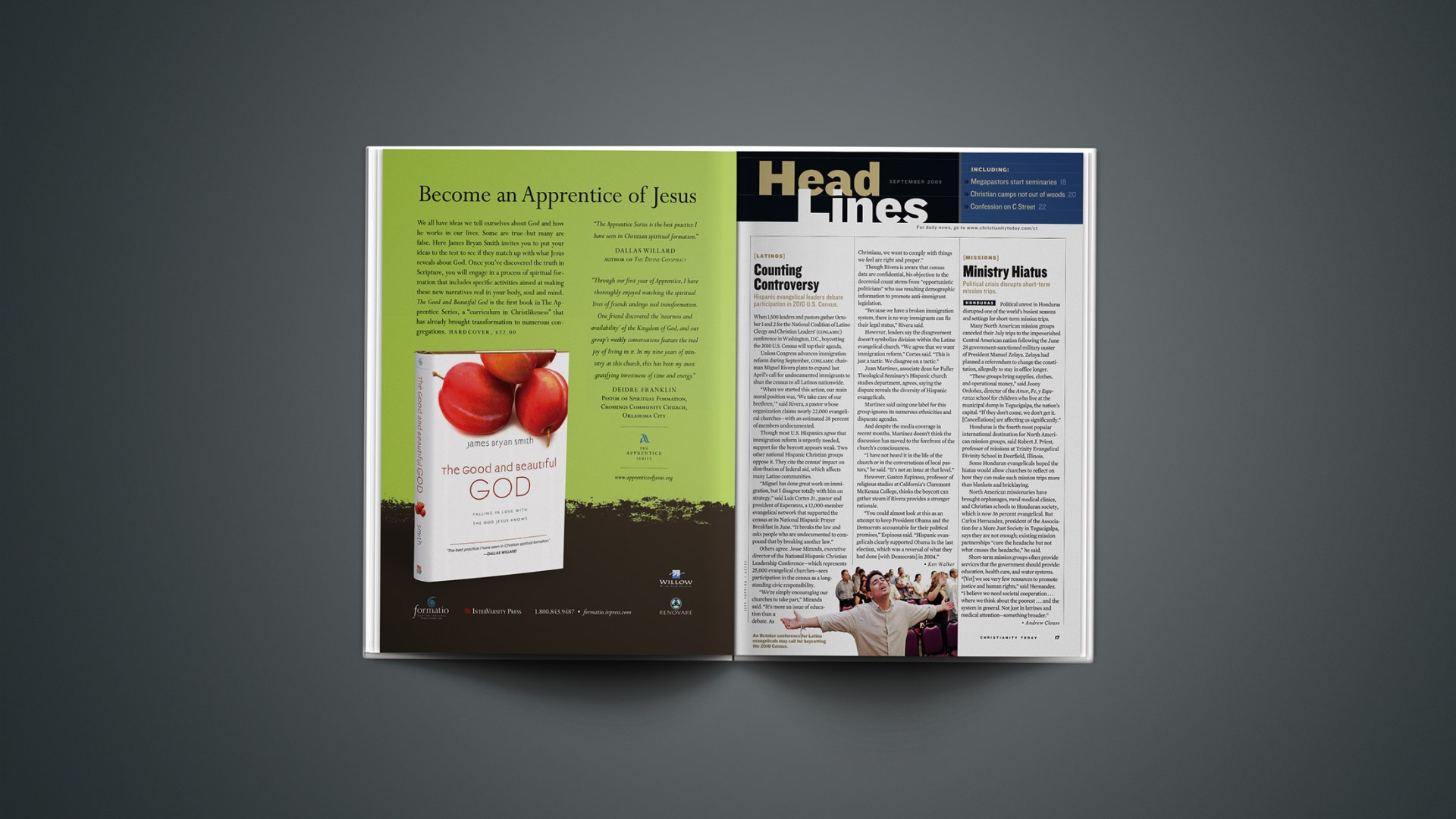When 1,500 leaders and pastors gather October 1 and 2 for the National Coalition of Latino Clergy and Christian Leaders’ (CONLAMIC) conference in Washington, D.C., boycotting the 2010 U.S. Census will top their agenda.
Unless Congress advances immigration reform during September, CONLAMIC chairman Miguel Rivera plans to expand last April’s call for undocumented immigrants to shun the census to all Latinos nationwide.
“When we started this action, our main moral position was, ‘We take care of our brethren,'” said Rivera, a pastor whose organization claims nearly 22,000 evangelical churches—with an estimated 38 percent of members undocumented.
Though most U.S. Hispanics agree that immigration reform is urgently needed, support for the boycott appears weak. Two other national Hispanic Christian groups oppose it. They cite the census’ impact on distribution of federal aid, which affects many Latino communities.
“Miguel has done great work on immigration, but I disagree totally with him on strategy,” said Luis Cortes Jr., pastor and president of Esperanza, a 12,000-member evangelical network that supported the census at its National Hispanic Prayer Breakfast in June. “It breaks the law and asks people who are undocumented to compound that by breaking another law.”
Others agree. Jesse Miranda, executive director of the National Hispanic Christian Leadership Conference—which represents 25,000 evangelical churches—sees participation in the census as a longstanding civic responsibility.
“We’re simply encouraging our churches to take part,” Miranda said. “It’s more an issue of education than a debate. As Christians, we want to comply with things we feel are right and proper.”
Though Rivera is aware that census data are confidential, his objection to the decennial count stems from “opportunistic politicians” who use resulting demographic information to promote anti-immigrant legislation.
“Because we have a broken immigration system, there is no way immigrants can fix their legal status,” Rivera said.
However, leaders say the disagreement doesn’t symbolize division within the Latino evangelical church. “We agree that we want immigration reform,” Cortes said. “This is just a tactic. We disagree on a tactic.”
Juan Martinez, associate dean for Fuller Theological Seminary’s Hispanic church studies department, agrees, saying the dispute reveals the diversity of Hispanic evangelicals.
Martinez said using one label for this group ignores its numerous ethnicities and disparate agendas.
And despite the media coverage in recent months, Martinez doesn’t think the discussion has moved to the forefront of the church’s consciousness.
“I have not heard it in the life of the church or in the conversations of local pastors,” he said. “It’s not an issue at that level.”
However, Gaston Espinosa, professor of religious studies at California’s Claremont McKenna College, thinks the boycott can gather steam if Rivera provides a stronger rationale.
“You could almost look at this as an attempt to keep President Obama and the Democrats accountable for their political promises,” Espinosa said. “Hispanic evangelicals clearly supported Obama in the last election, which was a reversal of what they had done [with Democrats] in 2004.”
Copyright © 2009 Christianity Today. Click for reprint information.
Related Elsewhere:
Christianity Today has a special section about immigration on our site, including:
The Soul of the Border Crisis | Local churches are key in fixing the immigration mess. (June 8, 2009)
What to Do with the Stranger? | Two evangelicals argue for more generous immigration policies. (May 11, 2009)
Interview: When the Stranger Knocks | The influx of immigrants to the U.S. means a new mission field for American evangelicals, says World Relief’s Jenny Hwang. (May 11, 2009)
See our news section and liveblog for more news updates.










